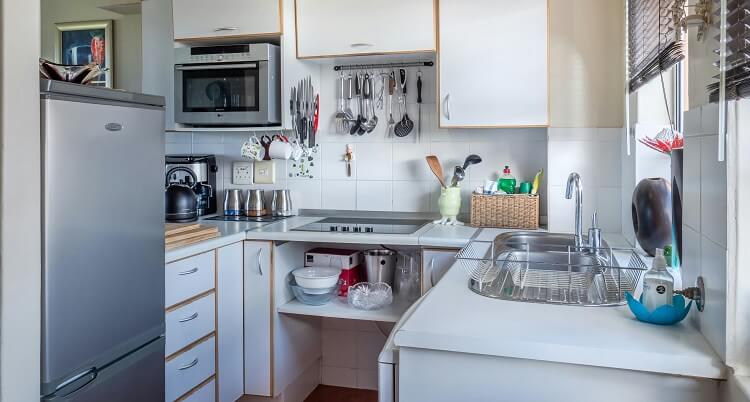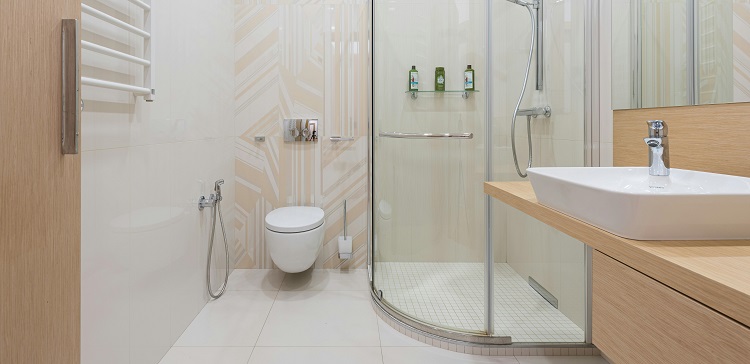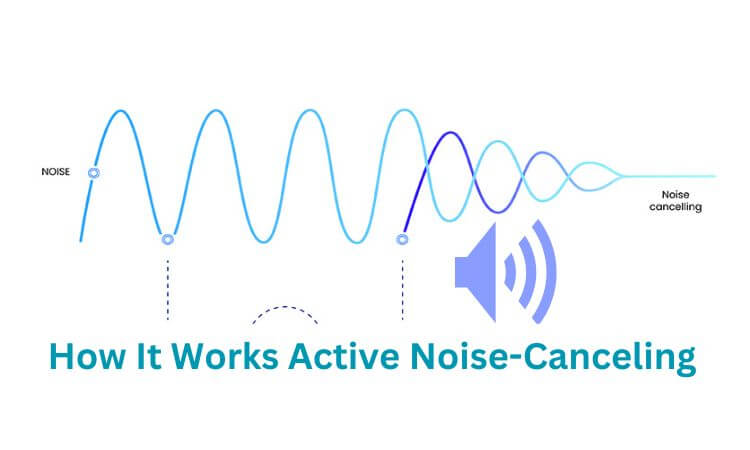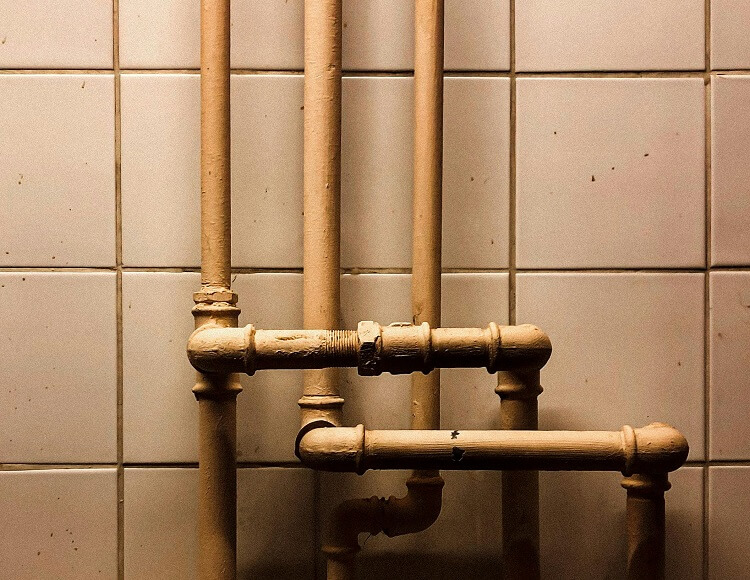
Is the constant hum of your refrigerator or the clatter of your dishwasher disrupting the tranquility of your home? If you’re wondering, “what are the best ways to quiet noisy kitchen appliances,” you’re in the right place. Noisy appliances can be more than just an annoyance; they often signal underlying issues that, if addressed early, can prevent further damage and costly repairs.
This article provides practical solutions for common appliance noise problems, empowering you to restore peace to your kitchen without resorting to replacements or expensive service calls.
Why Kitchen Appliances Become Noisy Over Time
Over time, the normal wear and tear of daily use can take a toll on your kitchen appliances. Components loosen, lubricants dry out, and accumulated debris can interfere with smooth operation, leading to increased noise. For example, in a refrigerator, the compressor motor can wear down, causing a louder hum or buzzing sound.
In dishwashers, the wash pump and drain pump can develop issues, leading to grinding or rattling noises. Even small components like screws and gaskets can loosen, contributing to vibrations and rattles. Dust and dirt buildup in motors and fans can also restrict airflow and amplify the sounds they produce.
Understanding the specific causes of noise in different appliances is the first step toward effective troubleshooting.
Neglecting these seemingly minor issues can lead to more significant problems and premature appliance failure. Addressing them promptly not only reduces noise but also extends the lifespan of your appliances.
Tools and Supplies You’ll Need for Quick Fixes
Before you begin, gather the following tools and supplies:
- Screwdrivers (flathead and Phillips)
- Appliance-specific lubricant (consult your appliance manual for recommendations)
- Soft cleaning cloths
- Appliance-safe cleaning solutions
- Anti-vibration pads
- Multimeter (for checking electrical connections, if needed)
Having these items readily available will make the repair process smoother and more efficient.
Identifying the Culprit: Troubleshooting Common Appliances
Dishwasher
Dishwashers are notorious for rattling, grinding, or humming. Loose spray arms, a clogged filter, or a worn-out wash pump are common culprits.
Check if the spray arms spin freely and are securely attached. Consult your dishwasher’s manual for instructions on accessing and cleaning the filter, as the process varies between models. A humming sound might indicate a problem with the wash pump or drain pump.
Refrigerator
Refrigerators often emit humming, buzzing, or clicking noises.
Uneven leveling, dirty condenser coils, a faulty evaporator fan motor, or a failing compressor are potential sources of these sounds. Ensure the refrigerator is level using a level and adjust the leveling feet accordingly. Clean the condenser coils, usually located at the back or bottom of the fridge, with a vacuum cleaner brush attachment.
A clicking or whirring sound coming from inside the refrigerator might indicate a problem with the evaporator fan motor.
Blender
A blender’s motor can create loud grinding noises if the blades are dull, bent, or loose, or if the jar isn’t properly seated. Inspect the blades for damage and sharpness. Tighten the blade assembly and ensure the jar is securely attached to the base.
Overloading the blender can also strain the motor and cause excessive noise.
Microwave
Rattling or humming in a microwave can be caused by a faulty turntable motor, debris in the fan, or loose components. Ensure the turntable is correctly centered and rotates smoothly. Clean the fan area, which is usually accessible through a vent on the back or side of the microwave.
Inspect the interior for loose screws or parts and tighten them as needed.
Oven
Unusual whirring, squeaking, or clicking noises in an oven can be due to a faulty fan motor, worn-out igniter, or problems with the heating elements. If you suspect a problem with the fan motor or igniter, it’s best to consult a qualified technician.
Easy Fixes for Common Appliance Noise Issues
Note: Always disconnect the appliance from the power supply before attempting any repairs.
Dishwasher
- Tighten spray arms: Use a screwdriver to tighten any loose screws on the spray arms.
- Clean the filter: Consult your dishwasher’s manual for specific instructions on how to access and clean the filter.
- Install anti-vibration pads: Place anti-vibration pads beneath the dishwasher to reduce noise transfer to the floor.
Refrigerator
- Level the refrigerator: Adjust the leveling feet until the refrigerator is level.
- Clean the condenser coils: Vacuum the condenser coils with a brush attachment.
- Check door gaskets: Inspect the door gaskets for cracks or damage and replace them if necessary to ensure a tight seal.
Blender
- Tighten the blade assembly: Securely tighten the blade assembly to the jar.
- Check jar placement: Ensure the jar is properly seated on the motor base.
- Avoid overloading: Do not overfill the blender jar, as this can strain the motor.
Microwave
- Center the turntable: Ensure the turntable is correctly centered on its support.
- Clean the fan area: Carefully clean the fan area with a damp cloth.
- Tighten loose screws: Inspect the interior for loose screws and tighten them if necessary.
Oven
- For any noises other than a slight whirring from the fan, it is best to consult a qualified appliance repair technician.
Preventative Maintenance to Keep Appliances Quiet
Regular maintenance can significantly reduce the likelihood of noisy appliances. Follow these tips:
- Dishwasher: Clean the filter regularly (weekly or monthly, depending on usage), and check the spray arms for any obstructions.
- Refrigerator: Clean the condenser coils every six months to a year.
Check and clean the door gaskets regularly.
- Blender: Clean the blender thoroughly after each use. Avoid blending hard objects that could damage the blades.
- Microwave: Wipe down the interior regularly and clean the fan area as needed.
- Oven: Have a professional inspect your oven annually to ensure proper function and address any potential issues.
When to Call a Professional
While many noise issues can be resolved with simple DIY fixes, some problems require professional attention. Contact a qualified appliance repair technician if:
- The noise persists after troubleshooting.
- You notice burning smells, smoke, or electrical issues like sparks or arcing.
- The appliance isn’t functioning correctly, in addition to being noisy.
- You suspect a problem with the motor, compressor, or other major components.
FAQ
Why is my new appliance already noisy?
New appliances can sometimes be noisy due to factory defects, shipping damage, or improper installation.
Check for loose parts, transit bolts that haven’t been removed, and ensure the appliance is correctly leveled and installed according to the manufacturer’s instructions.
Are there brands known for quieter appliances?
Yes, some brands are known for manufacturing quieter appliances. Research and compare different brands and models before making a purchase. Look for models specifically advertised as “quiet” or check online reviews for comments about noise levels.
Can appliance noise affect performance or longevity?
Yes, persistent noise can be a sign of wear and tear that may affect performance and shorten the lifespan of your appliance.
Addressing noise issues promptly can help maintain optimal performance and extend the life of your appliances.
Table: Common Appliance Noises and Their Solutions
| Appliance | Common Noise | Likely Cause | Solution |
|---|---|---|---|
| Dishwasher | Rattling or grinding | Loose spray arms, debris in filter, worn wash pump | Tighten arms, clean filter, consult a technician if pump is suspected |
| Refrigerator | Humming or buzzing, clicking | Dirty coils, uneven leveling, faulty evaporator fan motor, failing compressor | Clean coils, adjust leveling feet, consult a technician for motor or compressor issues |
| Blender | Loud grinding | Dull or loose blades, improperly seated jar | Sharpen or replace blades, tighten blade assembly, ensure jar is secure |
| Microwave | Rattling or humming | Off-center turntable, debris in fan, faulty turntable motor | Center turntable, clean fan area, consult a technician for motor issues |
| Oven | Whirring, clicking, squeaking (excessive) | Faulty fan motor, worn igniter, issues with heating elements | Consult a qualified technician |
Conclusion
A noisy kitchen can be a significant source of stress. By understanding the common causes of appliance noise and applying the troubleshooting tips outlined in this article, you can often resolve the issue yourself and restore peace and quiet to your kitchen. Remember that preventative maintenance is key to keeping appliances running smoothly and quietly.
Don’t hesitate to contact a qualified appliance repair technician for persistent noises or more complex problems that require professional expertise. With a little effort, you can enjoy a quieter and more serene kitchen environment for years to come.






